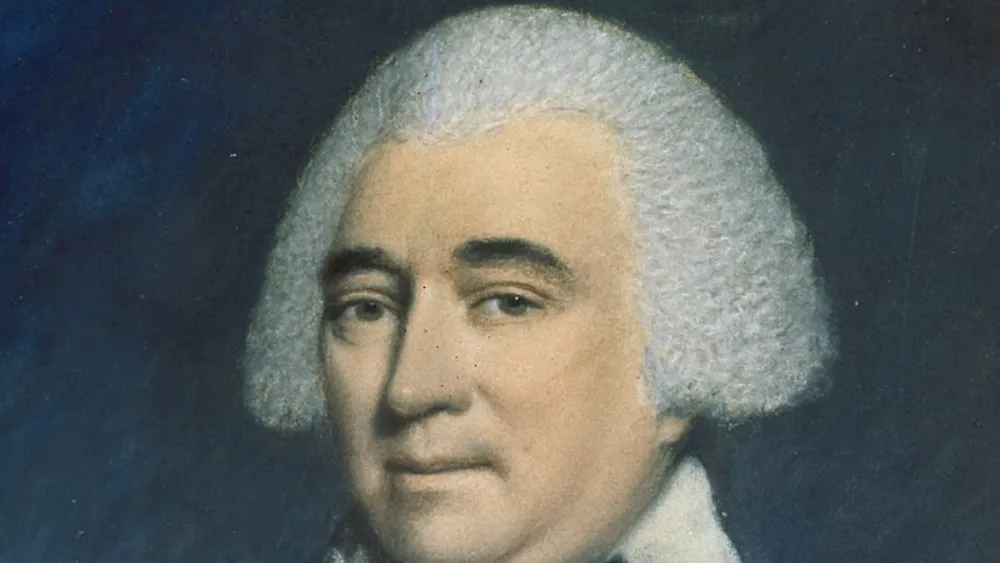Major General Anthony Wayne was a distinguished American commander during the American Revolution. Before the war, Wayne made a name for himself as a successful businessman. He played a crucial role in recruiting troops during the early stages of the conflict.
In early 1776, he received his commission into the Continental Army. Thereafter, he began his service in Canada before eventually joining General George Washington’s forces.
Throughout the ensuing years, Wayne’s exceptional leadership and valor shone in every campaign. So, it culminated in his celebrated victory at the Battle of Stony Point.
His triumphant victory at the Battle of Fallen Timbers, followed by the signing of the Treaty of Greenville, achieved a paramount goal of the Washington Administration. It effectively quelled Native Americans’ resistance, paving the way for peaceful white settlement in what is now Ohio.
A Modest Quaker Upbringing of Anthony Wayne
Anthony Wayne, born in East Town Township, Pennsylvania, on January 1st, 1745, came from a humble Quaker family. He grew up on a farm, receiving no formal education. Yet, he developed a strong sense of duty and a diligent work ethic from a young age.
This upbringing instilled in him the values of self-reliance and discipline. He also had a profound love for his homeland that would define his future contributions to the nation.
At 20, Wayne’s life took a significant turn when he joined the Pennsylvania Provincial Militia in 1765. Little did he know that this decision would become the first step on his journey. Soon, he became a renowned military leader.
Although his early military service was relatively uneventful, it gave him valuable experience. Moreover, he learned a deep sense of the importance of defending American liberties.
When the American Revolution ignited in 1775, it brought forth a calling that would shape Wayne’s destiny. The conflict presented him with the opportunity to demonstrate his military acumen and his unshakable commitment to the cause of independence.
Major General Anthony Wayne and His Heroic Legacy
When the Revolutionary War commenced in 1775, Wayne took it upon himself to raise a regiment of Pennsylvanians eager to join the fight for independence. His dedication and leadership qualities quickly earned him the rank of colonel in 1776.
Wayne, however, was not merely a run-of-the-mill military officer; he possessed a reputation for valor, resolve, and a penchant for audacious military strategies.
During the Battle of Monmouth, his reputation for daring and his amazing capacity to wrest victory from the jaws of defeat were best displayed. He rallied a group of dispirited survivors from the grueling Valley Forge encampment.
Leading them to a resounding victory against a formidable British force comprised of highly trained regulars.
However, on July 15, 1779, at Stony Point, New York, Wayne’s heroic reputation was cemented. In an audacious maneuver, he led a daring bayonet charge up a well-fortified. Therefore, it elevated the stronghold defended by two companies of British grenadiers.
British Refusal and Native American Resistance
Anthony Wayne’s resurgence occurred when he received an invitation from President Washington. He led the Legion of the United States on an ambitious military expedition into the Northwest Territory.
This vast region, comprising present-day Ohio, Indiana, Illinois, Michigan, and Wisconsin, was a source of contention. The British refused to leave the territory they had given to the United States in violation of the Treaty of Paris.
Native American tribes fiercely fought any attempts to build American settlements in the area. So, it leads to repeated attacks against settlers.
Undaunted by the challenge’s magnitude, Wayne took on this mission with his trademark zeal and determination. He orchestrated an exceptionally well-executed campaign. Furthermore, it became the pinnacle of which was the decisive Battle of Fallen Timbers in 1794.
In this critical engagement, Wayne’s forces inflicted a crushing defeat upon the Native American tribes. With their erstwhile allies vanquished, the British had no choice but to surrender their garrisons to Wayne. This victory allowed Wayne to assert American control over the Northwest Territory. It is a precursor to the state of Ohio’s eventual establishment.
Assessing Wayne’s Leadership Style
Wayne’s triumphant campaign achieved what had eluded all prior military and diplomatic endeavors. In the Treaty of Greenville, the Native American signatories relinquished all claims to the territory of Ohio.
This victory not only compelled the Native Americans to cede their territorial rights but also pressured the British into relinquishing their forts in the area, marking a significant turning point in the Northwest.
Tragically, Wayne did not have the opportunity to bask in the adulation of his newly unified nation for long. His life was cut short by complications arising from gout, and he passed away on December 15, 1796.
He died journeying from Philadelphia back to the Northwest, leaving behind a legacy of military valor and leadership that endures today.
President Washington’s views on Wayne as a leader appear to have been a mixture of admiration and skepticism. Washington observed that Wayne was “More active and enterprising than judicious and cautious during his presidency. He also noted Wayne’s tendency to be “too indulgent to his officers and men.”

A Nation in Mourning: The Loss of a Revered Patriot
Anthony Wayne’s untimely passing in Erie, Pennsylvania, marked the tragic end of an illustrious career that had made a lasting impact on the young United States.
His death left a void in the hearts of those who had served alongside him and a sense of loss among a nation that revered his courage and dedication.
Even after he passed away, General Wayne’s legacy continued, going beyond time and borders and forever preserving his name in the United States.
Fort Wayne, a vibrant city in Indiana, stands as a living testament to his heroic legacy, reminding generations of the remarkable individuals who forged the nation’s foundation.
General Anthony Wayne’s dedication to the American cause and his contributions to the nation’s early history have etched his name into the annals of American folklore.










